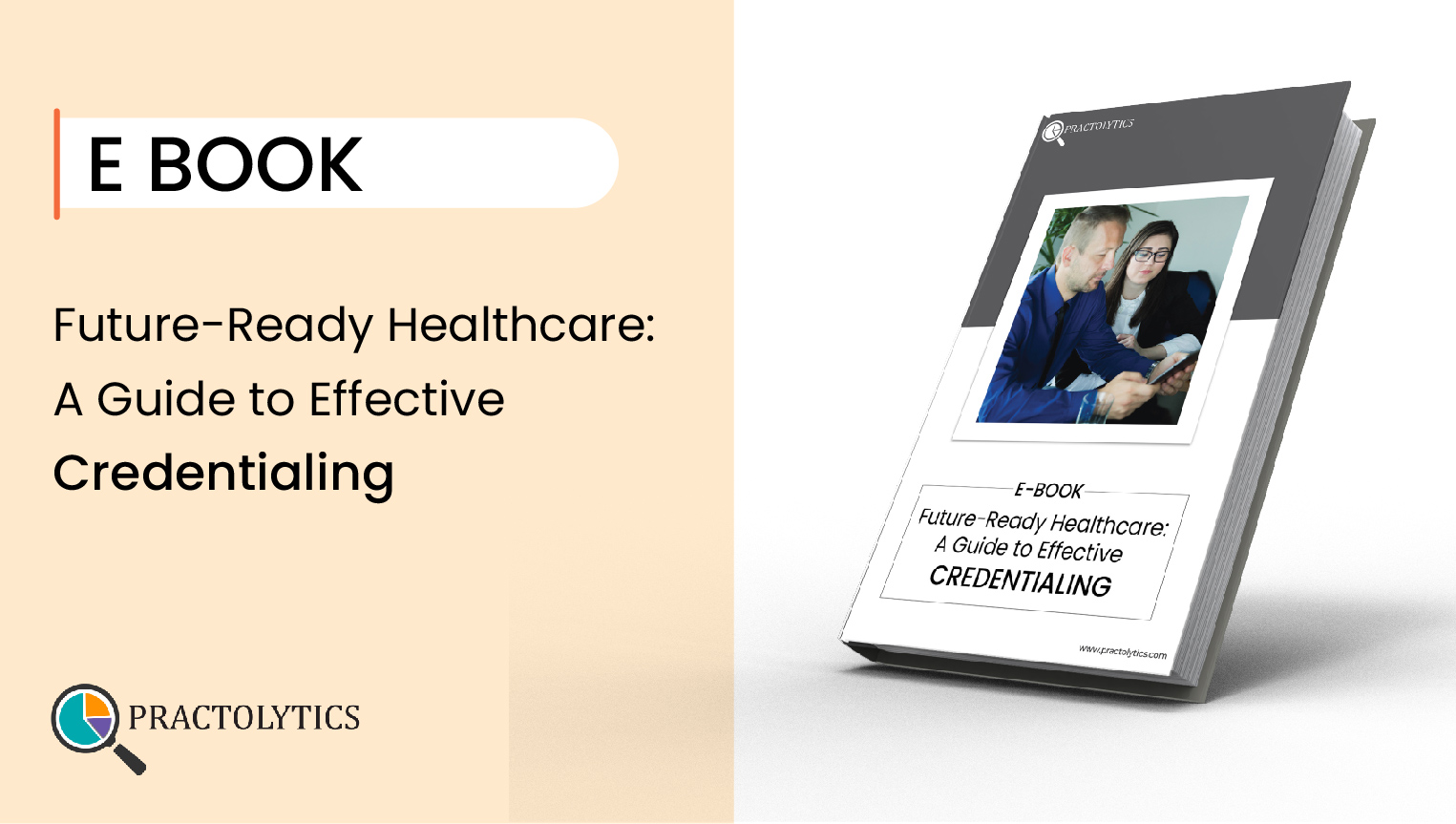

Future-Ready Healthcare: A Guide to Effective Credentialing
Why Credentialing Matters
- Ensures provider qualifications and patient safety.
- Helps with compliance, reimbursement, and insurance network access.
- Enhances professional reputation and trust.
Credentialing Process
- Application Submission – Providers submit education, license, and work history.
- Document Collection – Includes certifications, malpractice insurance, and training records.
- Primary Source Verification – Confirms qualifications from original institutions.
- Committee Review – Evaluates eligibility for privileges and insurance panels.
- Approval & Enrollment – Grants credentials for practice and billing.
Challenges in Credentialing
- Complex rules from different insurers and healthcare organizations.
- Heavy administrative workload affecting clinical time.
- Delays due to incomplete applications and verification issues.
Ways to Streamline the Process
- Prepare early – Gather documents in advance.
- Use technology – Automate tracking and updates.
- Engage credentialing services – Reduce admin burden and speed up approvals.
Benefits of Credentialing Services
- Expert handling of compliance and payer requirements.
- Time efficiency – Less paperwork, more patient care.
- Reduced errors – Fewer delays and denials.
- Ongoing maintenance – Timely renewals and compliance updates.
Practolytics Credentialing Services
- Primary Source Verification – Ensures valid provider qualifications.
- Application Management – Accurate and timely submissions.
- Deadline Tracking – Prevents lapses in credentials.
- Ongoing Maintenance – Supports re-credentialing and updates.
Why It Matters
Medical credentialing ensures compliance, enhances reputation, and expands practice opportunities. Partnering with Practolytics simplifies the process, allowing providers to focus on patient care.
Download the FREE Guide
Download the FREE Ebook
Why Credentialing Matters
- Ensures provider qualifications and patient safety.
- Helps with compliance, reimbursement, and insurance network access.
- Enhances professional reputation and trust.
Credentialing Process
- Application Submission – Providers submit education, license, and work history.
- Document Collection – Includes certifications, malpractice insurance, and training records.
- Primary Source Verification – Confirms qualifications from original institutions.
- Committee Review – Evaluates eligibility for privileges and insurance panels.
- Approval & Enrollment – Grants credentials for practice and billing.
Challenges in Credentialing
- Complex rules from different insurers and healthcare organizations.
- Heavy administrative workload affecting clinical time.
- Delays due to incomplete applications and verification issues.
Ways to Streamline the Process
- Prepare early – Gather documents in advance.
- Use technology – Automate tracking and updates.
- Engage credentialing services – Reduce admin burden and speed up approvals.
Benefits of Credentialing Services
- Expert handling of compliance and payer requirements.
- Time efficiency – Less paperwork, more patient care.
- Reduced errors – Fewer delays and denials.
- Ongoing maintenance – Timely renewals and compliance updates.
Practolytics Credentialing Services
- Primary Source Verification – Ensures valid provider qualifications.
- Application Management – Accurate and timely submissions.
- Deadline Tracking – Prevents lapses in credentials.
- Ongoing Maintenance – Supports re-credentialing and updates.
Why It Matters
Medical credentialing ensures compliance, enhances reputation, and expands practice opportunities. Partnering with Practolytics simplifies the process, allowing providers to focus on patient care.

